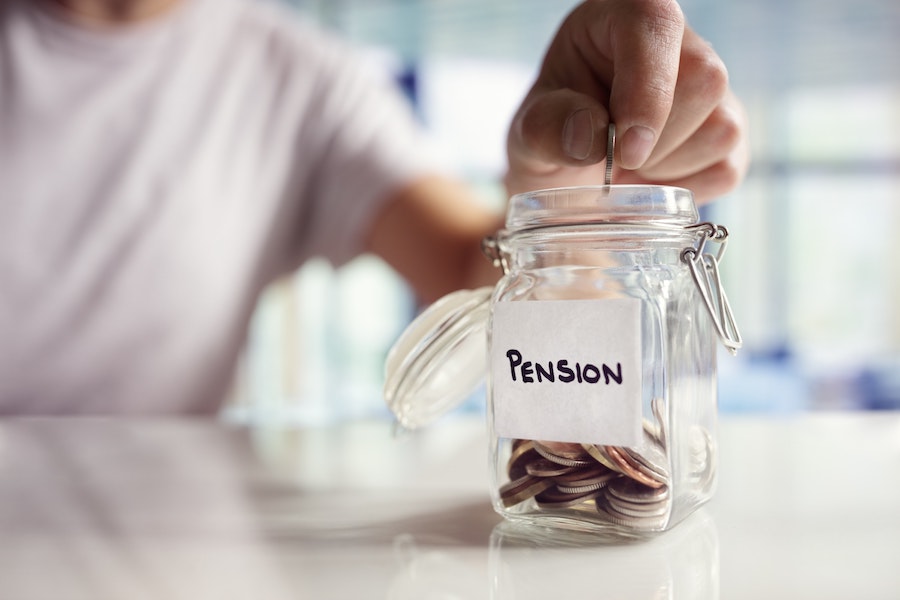Confused about pensions? Here’s what you need to know
Confused about your pension and how much you should be saving? Here are some expert tips.
More than three-quarters of employees across the UK were members of a workplace pension scheme last year – a new record high, official figures reveal.
According to the Office for National Statistics (ONS), 77% of employees were in a workplace pension scheme in 2019, marking the highest membership rate since comparable records started in 1997.
Automatic enrolment into workplace pensions, which started in 2012, has had a huge impact in getting people into the habit of saving for later life. And younger generations appear to have caught the savings bug, with 2019 seeing 80% of 22-29-year-old employees saving into a scheme – a massive leap from 31% when auto-enrolment started.

Keen to understand your pension better?
But while many are now saving for their long-term future, pensions can still be tricky to understand.
Here’s some tips from Jamie Jenkins, head of global savings policy at Standard Life, for getting to know your pension better…
What’s the difference between pensions and other savings?
A pension is designed specifically to provide an income in retirement. Money is paid into a pension plan and invested by your pension provider, using your investment instructions, or you can let them make that decision for you. Once you reach your chosen retirement age you can decide how your money is paid back to you.
A big difference between a pension and other savings products is that you receive some tax back on the money saved into your pension, that would have otherwise gone to the Government.
Do your numbers add up?
📱 Use this pension calculator to help get the retirement you want.
Try it now 👉 https://t.co/J1IpFgnsoG pic.twitter.com/9zds9qmG45
— DWP (@DWP) January 23, 2020
How much you get when you’re ready to take your pension will depend on how much you save, how your pension investments perform and how long you’re invested for.
What types of pensions are there?
Starting with your state pension, how much you receive depends on your national insurance record, which you can get an estimate of at gov.uk/check-state-pension.
If you also have a workplace pension, contributions will be taken directly from your salary and put into a pension plan, arranged by your employer. Government contributions are added in the form of tax relief.
Another option is a private or personal pension, where you choose the provider and arrange for your contributions to be paid directly from your bank account.
❔ How does your pension grow over time?
Find out what compound interest means for your pension with this handy video.
👉 https://t.co/ioFD201akx pic.twitter.com/3dPIzbvwYC
— DWP (@DWP) February 17, 2020
Why should I keep saving into my workplace pension?Effectively, you and your employer are putting part of your salary away now, tax-free, with a view to you being able to enjoy more in the future. A good way to look at this is that your workplace pension is essentially deferred pay for your future self.
What’s in my pension?
Pension providers usually offer a range of funds where your money can be invested. If you belong to a workplace scheme, and you don’t say how you want your contributions invested, your money will automatically go into a ‘default’ fund set up by the provider. You want your investments to grow, but bear in mind investments can go down in value, as well as up.
Do you know the size of your pension? Visit #pensionwise to find out what tax you could pay on your whole pension https://t.co/yRjQpa6VfI
— Citizens Advice (@CitizensAdvice) March 1, 2016
When can I use my pension?
The flexibility of private pensions means you can usually start taking money from age 55.
How do I decide when to take money from my workplace pension?
When and how you take money from your pension is a big decision – it can affect how long your pension pot lasts. The pension freedoms introduced in 2015 allow people aged 55 or over to take their pensions however they wish. The first 25% of pots is tax-free.
Before you take any money out though, consider if you really need to, and remember that you don’t need to take all your tax-free cash in one go.
How much should I be saving into my pension?

How much you save may depend on your salary and goals
Think how much you may need in retirement. Consider how much you earn currently – perhaps as a household, if you have a family – and what you would need in retirement to replace that income.
Keep in mind that you may have a mortgage which will be paid off, and children who are no longer dependent. Then add in what you might get from the state pension or any old pensions that pay a guaranteed income in retirement.
There is no precise answer as to how much you need to save, but many experts suggest 12-15% of your salary is a good target to aim for.
Above all, think about what you can afford to save. Your future self won’t regret it. And remember, depending on how near retirement you are, it might be worthwhile getting expert advice from a financial adviser.
The Press Association
Latest posts by The Press Association (see all)
- 5 unusual daffodil types and how to grow them - February 12, 2025
- How to spot RSV symptoms and simple steps to protect yourself - February 10, 2025
- What is prediabetes? - February 6, 2025
- 8 simple morning habits to boost your happiness - February 5, 2025
- Children’s Mental Health Week: The importance of communication - February 4, 2025




















